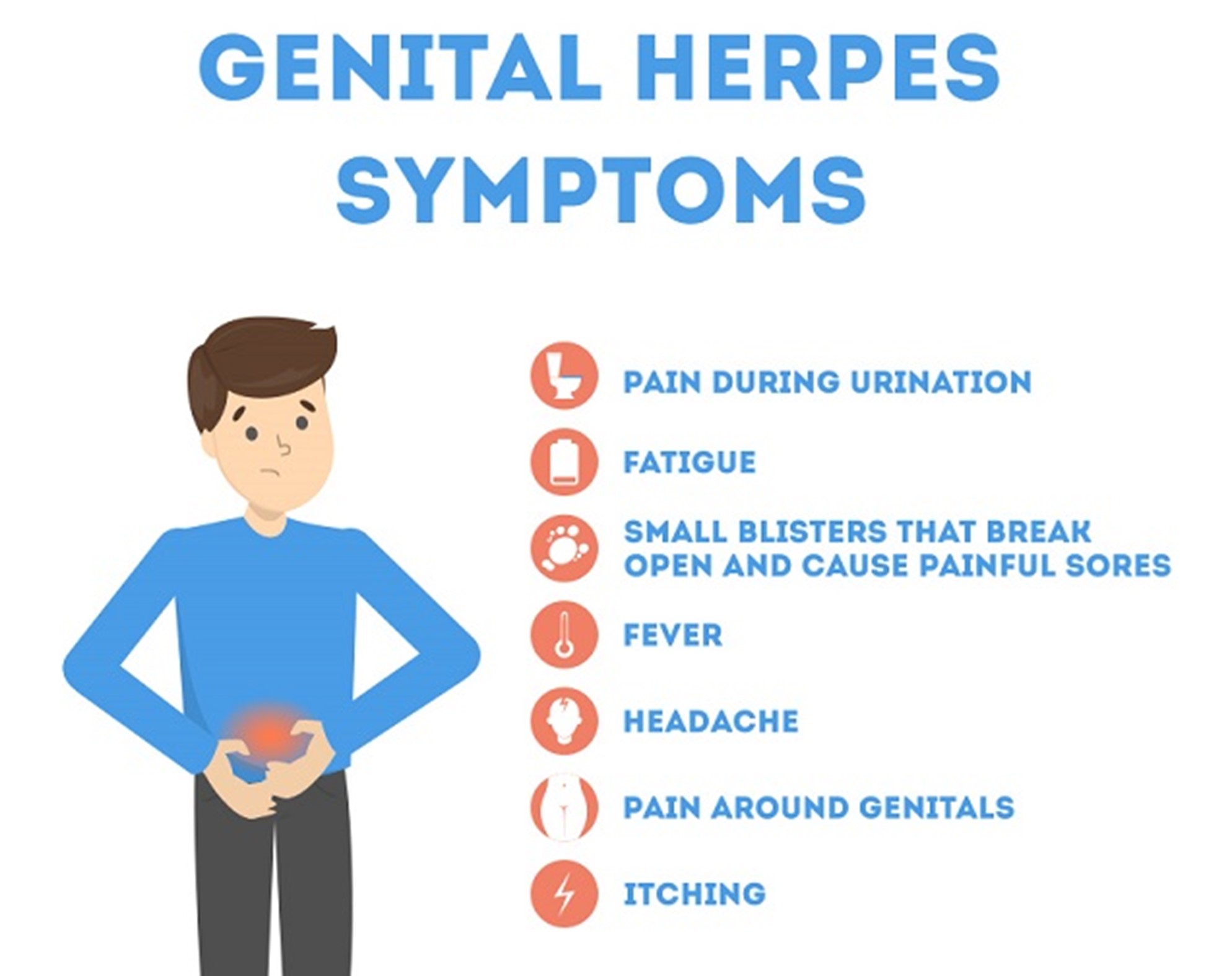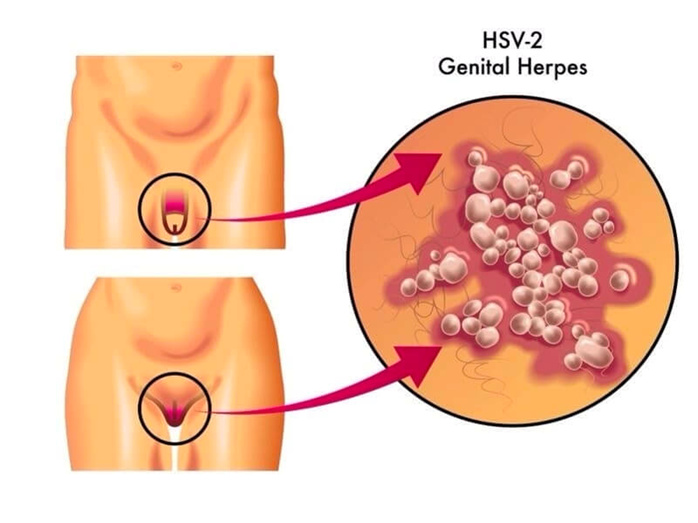A nurse is assessing a male client recently diagnosed with genital herpes. Which finding would most likely correlate with this diagnosis?
Reports of itching, tingling, and pain in the genital area
Painful urination with a penile discharge present
Wart-like flesh-colored lesions on the scrotal area
A chancre on the penis
The Correct Answer is A
Choice A: Reports of itching, tingling, and pain in the genital area are the correct answer because they are common symptoms of genital herpes. Genital herpes is a sexually transmitted infection (STI) caused by the herpes simplex virus (HSV). It can cause outbreaks of painful blisters or sores on or around the genitals, anus, or mouth. The blisters or sores usually heal within a few weeks, but the virus remains in the body and can reactivate at any time. Before an outbreak, some people may experience prodromal symptoms such as itching, tingling, or pain in the affected area.
Choice B: Painful urination with a penile discharge present is not the correct answer because it is more likely a symptom of another STI, such as gonorrhea or chlamydia. Gonorrhea and chlamydia are bacterial infections that can affect the urethra, cervix, rectum, or throat. They can cause symptoms such as burning or pain during urination, abnormal discharge from the penis or vagina, or bleeding between periods.
Choice C: Wart-like flesh-colored lesions on the scrotal area are not the correct answer because they are more likely a symptom of another STI, such as human papillomavirus (HPV). HPV is a viral infection that can cause genital warts or cervical cancer. Genital warts are small, soft, flesh-colored growths that can appear on or around the genitals, anus, or mouth. They may be flat, raised, or cauliflower-shaped.
Choice D: A chancre on the penis is not the correct answer because it is more likely a symptom of another STI, such as syphilis. Syphilis is a bacterial infection that can affect various organs and systems of the body. It has four stages: primary, secondary, latent, and tertiary. In the primary stage, syphilis causes a painless sore called a chancre that can appear on or around the genitals, anus, or mouth. The chancre usually heals within a few weeks, but the infection can progress to the next stages if left untreated.

Nursing Test Bank
Naxlex Comprehensive Predictor Exams
Related Questions
Correct Answer is D
Explanation
Choice A reason: Increased vaginal discharge is a normal and expected outcome of using a pessary, as it helps to lubricate and cleanse the vagina.
Choice B reason: Urinary tract infection is not a common side effect of using a pessary, as it does not interfere with urination or introduce bacteria into the urinary tract.
Choice C reason: Vaginitis is not a common side effect of using a pessary, as it does not cause inflammation or infection of the vagina. However, the client should maintain good hygiene and use vaginal cream or gel as prescribed to prevent irritation.
Choice D reason: Vaginal ulceration is a serious and possible side effect of using a pessary, as it can cause pressure necrosis and erosion of the vaginal mucosa. The client should report any bleeding, pain, or foul-smelling discharge to the provider and have the pessary removed and replaced regularly.

Correct Answer is A
Explanation
Choice A: Reports of itching, tingling and pain in genital area are the correct answer because they are common symptoms of genital herpes. Genital herpes is a sexually transmitted infection (STI) caused by the herpes simplex virus (HSV). It can cause outbreaks of painful blisters or sores on or around the genitals, anus, or mouth. The blisters or sores usually heal within a few weeks, but the virus remains in the body and can reactivate at any time. Before an outbreak, some people may experience prodromal symptoms such as itching, tingling, or pain in the affected area.
Choice B: Painful urination with a penile discharge present is not the correct answer because it is more likely a symptom of another STI, such as gonorrhea or chlamydia. Gonorrhea and chlamydia are bacterial infections that can affect the urethra, cervix, rectum, or throat. They can cause symptoms such as burning or pain during urination, abnormal discharge from the penis or vagina, or bleeding between periods.
Choice C: Wart-like flesh-colored lesions on the scrotal area are not the correct answer because they are more likely a symptom of another STI, such as human papillomavirus (HPV). HPV is a viral infection that can cause genital warts or cervical cancer. Genital warts are small, soft, flesh-colored growths that can appear on or around the genitals, anus, or mouth. They may be flat, raised, or cauliflower-shaped.
Choice D: A chancre on the penis is not the correct answer because it is more likely a symptom of another STI, such as syphilis. Syphilis is a bacterial infection that can affect various organs and systems of the body. It has four stages: primary, secondary, latent, and tertiary. In the primary stage, syphilis causes a painless sore called a chancre that can appear on or around the genitals, anus, or mouth. The chancre usually heals within a few weeks, but the infection can progress to the next stages if left untreated.
Whether you are a student looking to ace your exams or a practicing nurse seeking to enhance your expertise , our nursing education contents will empower you with the confidence and competence to make a difference in the lives of patients and become a respected leader in the healthcare field.
Visit Naxlex, invest in your future and unlock endless possibilities with our unparalleled nursing education contents today
Report Wrong Answer on the Current Question
Do you disagree with the answer? If yes, what is your expected answer? Explain.
Kindly be descriptive with the issue you are facing.
